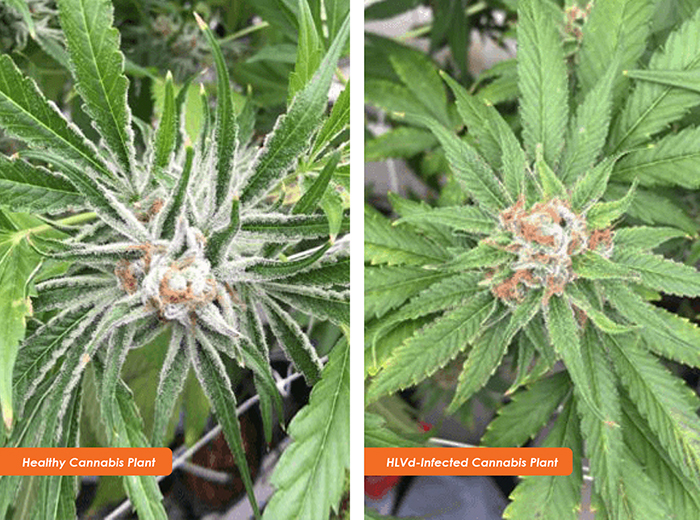A2LA is Calling on All Cannabis Testing Laboratories! Have Your Growers’ Back While Helping to Protect the Cannabis Industry.
It is well understood that viral pathogens can have a devastating impact. Pathogens such as COVID-19 have ripped apart our world and can spread like wildfire. Plant-based pathogens can equally be devastating, as seen in potato late blight pathogen and huanglongbing disease—it is time to get ahead of cannabis pathogens to prevent an industry from being torn apart!
Widespread treatment has proven ineffective compared to prevention and quarantine, as many pathogens become treatment-resistant over time. The cannabis industry is unique in that end-product is primarily derived from clones of quarantined mother plants. This means testing mother plants before cloning is essential for preventing destructive cannabis plant pathogens. Testing mother plants could circumvent considerable losses in plant yield as many pathogens are not readily observable in young plants. By the time your clients realize their loss in yield, it could be ‘too late,’ and their entire greenhouse is already infected!
Recent advancements allow PCR-based detection of common cannabis pathogens, including hop latent viroid, Cannabis cryptic virus, tobacco mosaic virus – and more!
Viral Disease in Cannabis
Hop latent viroid (HLVd) is an infectious single-stranded, circular RNA completely dependent on its host plant’s metabolism for replication. HLVd occurs worldwide and has been seen to infect cannabis or hemp plants. This pathogen is known to keep plants alive while significantly decreasing their yield and total size.

Cannabis cryptic virus (CCV) is a double-stranded RNA virus that was recently identified infecting cannabis plants resulting in decreased productivity. When a plant is infected with CCV, it grows more slowly with less bud density and sagging branches.
The tobacco mosaic virus (TMV) began infecting tobacco plants as early as 1892 and is still a threat to this day. This unique virus has been seen to infect tomato, pepper, eggplant, spinach, and cannabis plants. TMV can result in leaf discoloration, weakening stems, slower growth, and lower yield. As no ‘cure’ or effective treatment is known for these pathogens in cannabis, growers typically destroy and remove infected plants in hopes of stopping the spread.
Testing for Viral Infections
If your client’s previously healthy plants have become considerably smaller, weaker, or less potent, a viral infection may be the cause – not your potency technician! The most accurate diagnosis is achieved by testing a plant in triplicate. Viral pathogens in cannabis are difficult to identify visually, and the best detection method is PCR. Due to the similarity in symptoms between pathogens, it is best to utilize a multiplex approach for causal identification. By the time a grower notices decreased yield, it could be too late. The best way to truly confirm the presence of and prevent the spread of plant pathogens is to test plants before introduction/cloning!
A2LA wants our members to have their clients’ backs—protect your clients and prevent crop yield loss by adding plant pathogen detection to your scope of accreditation! We want to save you time and money by adding pathogen testing to your scope of accreditation before the state or federal regulations require it. You could be the first accredited cannabis pathogen testing lab in your state while other labs work through validations, training, and verifications. Offer testing to growers as soon as possible for all mother plants because you do not want to wait until your grower comes to you with the request, as by this point, their plants may have already been killed or severely compromised!
An additional benefit to this addition you may not have considered is that cannabis leaves seedlings, cuttings, or even extracted DNA can legally cross state lines and provide adequate resources for viral detection—you can expand your reach of clientele to states outside your home by offering cannabis and hemp pathogen detection nationwide!
To add cannabis or hemp pathogen testing to your scope of accreditation, reach out to your accreditation officer today to ask about a scope expansion.
Written by Morgan Keefer
